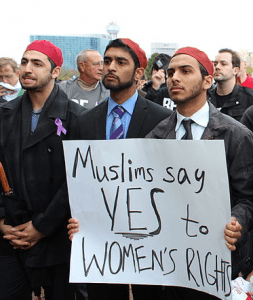When does a person become a person? There are a lot of different answers to that question floating around: At conception. When the genetic combining/programming, the creation of a new genome has occurred, about 30 hours after conception. When the heart starts beating, about 22 days. When brainwaves are first recorded, around 42 days. When the baby “quickens” and first movements from within the womb can be felt, around 16 weeks. When it can first survive outside the womb, though still needing intense care in order to do so, around 22-24 weeks. When it is born. When it first draws breath.

Some of these points have more compelling arguments than others. Conception and the formation of genetic individuality are both clearly beginning points of a new individual. Achieving the ability to survive outside the womb albeit with significant medical intervention marks the beginning of a potentially independent being. Actual birth or the first breath marks another beginning point, a separation into complete individuality.
Some rely solely on religious precepts. Many Muslim jurists have ruled that an embryo becomes a human being at 120 days, approximately 17 weeks, when the spirit is breathed into it by God according to one hadith, while others believe that if poverty is the reason for the abortion, it is a sin. Jews have believed that life begins at birth for thousands of years. The Catholic church, on the other hand, currently insists that personhood begins at conception, though at one point it held no objections to abortion prior to quickening.
Other arguments, which are being used as the basis of proposed laws, seem rather arbitrary. Is an embryo whose heart is not yet beating any less alive and on the journey to babyhood than one whose heart is beating? Ditto with brainwaves. Especially when there creatures like jellyfish who have neither brain nor heart, but are clearly individual animals living, eating, reproducing and dying.
The very fact that there are so many competing definitions of when a person becomes a person, many of which are based on religious belief, makes the abortion argument one that government should stay out of. The constitution affirms that the government, “shall make no law respecting an establishment of religion, or prohibiting the free exercise thereof.” An abortion ban at 6 weeks impedes Muslims from acting on the teachings of their religion; a ban at the age of viability impedes Jews and others from following their beliefs.
If we have to have a law regarding abortion, based on the 1st amendment, we should adopt the most permissive belief, that rights pertain to a person at first breath, so as to abide by the non-establishment clause of the Constitution, and to ensure Americans freedom of conscience. Even New York’s new abortion law which is being decried as immoral by the religious right, was more restrictive than that, making all abortions before 24 weeks (the age of viability) legal, and allowing abortions after that only in cases where the mother’s health was impacted or the fetus was not viable (prenatal death, genetic problems, or birth defects, etc).
Naturally, there are cases where religious rights come in conflict the state’s mandate to ensure that all citizens have equal protection under the law. Thus parents who rely on faith healing instead of seeking modern medical care for their children may find themselves faced with criminal charges and convictions, as the right of the child to life supersedes the right of the parents to their beliefs. New York and the Supreme Court in various Roe v Wade interpretations have ruled that the potential viability of a fetus is enough to endow it with personhood, and thus its right to life supersedes a woman’s right to control her own body.
It is at least the attempt at a reasonable ruling, and a balance between individual rights. It would be interesting to see what the legal rulings would be for a woman asking for an induction at 24 weeks? Since the child is potentially viable at that point – at least enough to give status as a person — does she have the responsibility to continue carrying it? Or, since it’s a viable human in its own right, does her responsibility end? Perhaps child welfare services will get involved and take the child from her as an unfit mom…












